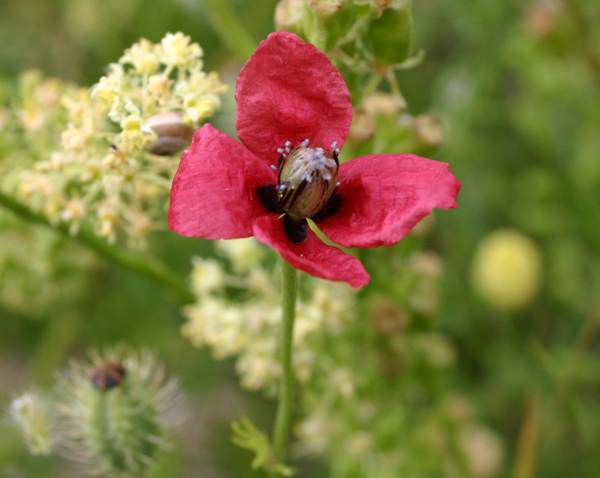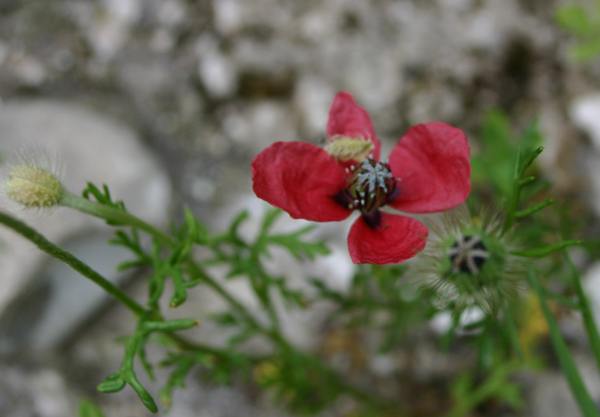Papaver hybridum - Rough Poppy
Phylum: Magnoliophyta - Class: Equisetopsida - Order: Ranunculales - Family: Papaveraceae

Description
Rough Poppy is an annual and grows to a height of up to 50cm, although 30cm is more typical. The flowers, born singly on hairy stems, are 2.5 to 5cm across and have four deep red petals, each with a black spot at the base. The petals are usually abutting or slightly separated rather than overlapping.
Distribution
In Britain this is the least common of the native poppy species. It is most often seen in southern Britain and is much less plentiful in the north of England and in Scotland.

Habitat
Popies love disturbed soil. Rough Poppy is most ofen found on chalky soil, although it can tolerate neutral or mildly acidic soil..
Blooming times
In Britain the Rough Poppy usually produces flowers from late April through to the end of June.
Etymology
The specific epithet hybridum comes from the Latin word for mongrel.
The pictures shown on this page were taken in England and Wales during May and June.
Sue Parker's latest ebook is a revised and enlarged edition of Wild Orchids in The Burren. Full details here...
Buy it for just £5.95 on Amazon...
Please Help Us: If you have found this information interesting and useful, please consider helping to keep First Nature online by making a small donation towards the web hosting and internet costs.
Any donations over and above the essential running costs will help support the conservation work of Plantlife, the Rivers Trust and charitable botanic gardens - as do author royalties and publisher proceeds from books by Pat and Sue.

